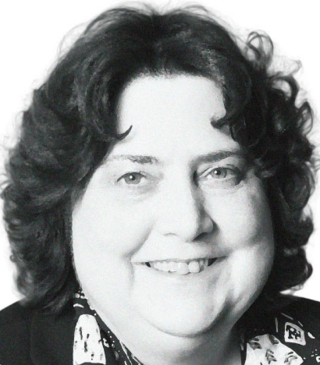
A germline mutation, or germinal mutation, is any detectable variation within germ cells. Mutations in these cells are the only mutations that can be passed on to offspring, when either a mutated sperm or oocyte come together to form a zygote. After this fertilization event occurs, germ cells divide rapidly to produce all of the cells in the body, causing this mutation to be present in every somatic and germline cell in the offspring; this is also known as a constitutional mutation. Germline mutation is distinct from somatic mutation.

Cowden syndrome is an autosomal dominant inherited condition characterized by benign overgrowths called hamartomas as well as an increased lifetime risk of breast, thyroid, uterine, and other cancers. It is often underdiagnosed due to variability in disease presentation, but 99% of patients report mucocutaneous symptoms by age 20–29. Despite some considering it a primarily dermatologic condition, Cowden's syndrome is a multi-system disorder that also includes neurodevelopmental disorders such as macrocephaly.

MUTYH is a human gene that encodes a DNA glycosylase, MUTYH glycosylase. It is involved in oxidative DNA damage repair and is part of the base excision repair pathway. The enzyme excises adenine bases from the DNA backbone at sites where adenine is inappropriately paired with guanine, cytosine, or 8-oxo-7,8-dihydroguanine, a common form of oxidative DNA damage.

DNA polymerase delta catalytic subunit(DPOD1) is an enzyme that is encoded in the human by the POLD1 gene, in the DNA polymerase delta complex. DPOD1 is responsible for synthesizing the lagging strand of DNA, and has also been implicated in some activities at the leading strand. The DPOD1 subunit encodes both DNA polymerizing and exonuclease domains, which provide the protein an important second function in proofreading to ensure replication accuracy during DNA synthesis, and in a number of types of replication-linked DNA repair following DNA damage.

BRCA1 associated protein-1 is a deubiquitinating enzyme that in humans is encoded by the BAP1 gene. BAP1 encodes an 80.4 kDa nuclear-localizing protein with a ubiquitin carboxy-terminal hydrolase (UCH) domain that gives BAP1 its deubiquitinase activity. Recent studies have shown that BAP1 and its fruit fly homolog, Calypso, are members of the polycomb-group proteins (PcG) of highly conserved transcriptional repressors required for long-term silencing of genes that regulate cell fate determination, stem cell pluripotency, and other developmental processes.
The exome is composed of all of the exons within the genome, the sequences which, when transcribed, remain within the mature RNA after introns are removed by RNA splicing. This includes untranslated regions of messenger RNA (mRNA), and coding regions. Exome sequencing has proven to be an efficient method of determining the genetic basis of more than two dozen Mendelian or single gene disorders.

Exome sequencing, also known as whole exome sequencing (WES), is a genomic technique for sequencing all of the protein-coding regions of genes in a genome. It consists of two steps: the first step is to select only the subset of DNA that encodes proteins. These regions are known as exons—humans have about 180,000 exons, constituting about 1% of the human genome, or approximately 30 million base pairs. The second step is to sequence the exonic DNA using any high-throughput DNA sequencing technology.

Professor Sir John Burn is a British professor of Clinical Genetics at Newcastle University and senior leader in England's National Health Service.

The Wellcome Centre for Human Genetics is a human genetics research centre of the Nuffield Department of Medicine in the Medical Sciences Division, University of Oxford, funded by the Wellcome Trust among others.

Simon E. Fisher is a British geneticist and neuroscientist who has pioneered research into the genetic basis of human speech and language. He is a director of the Max Planck Institute for Psycholinguistics and Professor of language and genetics at the Donders Institute for Brain, Cognition and Behaviour in Nijmegen, The Netherlands.
B K Thelma commonly known as Bittianda Kuttapa Thelma is a professor in the Department of Genetics at the University of Delhi, South Campus, New Delhi, India. She is the Principal investigator and Co-ordinator of the Centre of excellence on Genomes Sciences and Predictive Medicine funded by the Govt. of India. She is also the Co-ordinator of a major project on newborn screening for inborn errors of metabolism in Delhi state which aims to demonstrate the feasibility of mandatory screening of newborns in the country and to generate epidemiological data for the testable IEMs in the genetically distinct Indian population, for the first time.
Eleftheria Zeggini is a director of the institute of translational genomics in Helmholtz Zentrum München and a professor at the Technical University of Munich (TUM). Previously she served as a research group leader at the Wellcome Trust Sanger Institute from 2008 to 2018 and an honorary professor in the department of health sciences at the University of Leicester in the UK.
Mutational signatures are characteristic combinations of mutation types arising from specific mutagenesis processes such as DNA replication infidelity, exogenous and endogenous genotoxin exposures, defective DNA repair pathways, and DNA enzymatic editing.
Rosalind Anne Eeles is a Professor of Oncogenetics at the Institute of Cancer Research and clinician at the Royal Marsden NHS Foundation Trust. She is a leader in the field of genetic susceptibility to prostate cancer, and is known for the discovery of 14 genetic variants involved in prostate cancer predisposition. According to ResearchGate, Eeles has published more than 500 articles in peer-reviewed journals, with over 34,000 citations and an h-index of 92. Eeles was elected a Fellow of the Academy of Medical Science in 2012. She was awarded a National Institute for Health Research Senior Investigator Emeritus in 2014.
Ian Tomlinson is a director of the Institute of Cancer and Genomic Sciences at the University of Birmingham.

Tara Matise is an American geneticist at Rutgers University. Since 2018, she has served as chair of the Department of Genetics. Her research interests span computational genetics, data science, and human genetics. She is co-director of the Rutgers University Genetics Coordinating Center.

Deborah Ann "Debbie" Nickerson was an American human genomics researcher. She was professor of genome sciences at the University of Washington. Nickerson founded and directed of one of the five clinical sites of the Gregor Consortium and was a major contributor to many genomics projects, including the Human Genome Project and the International HapMap Project.

Susanna-Assunta Sansone is a British-Italian data scientist who is professor of data readiness at the University of Oxford where she leads the data readiness group and serves as associate director of the Oxford e-Research Centre. Her research investigates techniques for improving the interoperability, reproducibility and integrity of data.
Anne Goriely is a British geneticist who is a professor of human genetics at the University of Oxford. Her research investigates the molecular mechanisms that underpin genetic variation, particularly mutations in the male germline.
Dame Lyn Susan Chitty is a British physician and Professor of Genetics and Fetal Medicine at University College London. She is the deputy director of the National Institute for Health and Care Research Great Ormond Street Hospital Biomedical Research Centre. She is the 2022 president of the International Society for Prenatal Diagnosis. Her research considers non-invasive prenatal diagnostics. She was made a Dame in the 2022 New Year Honours.











